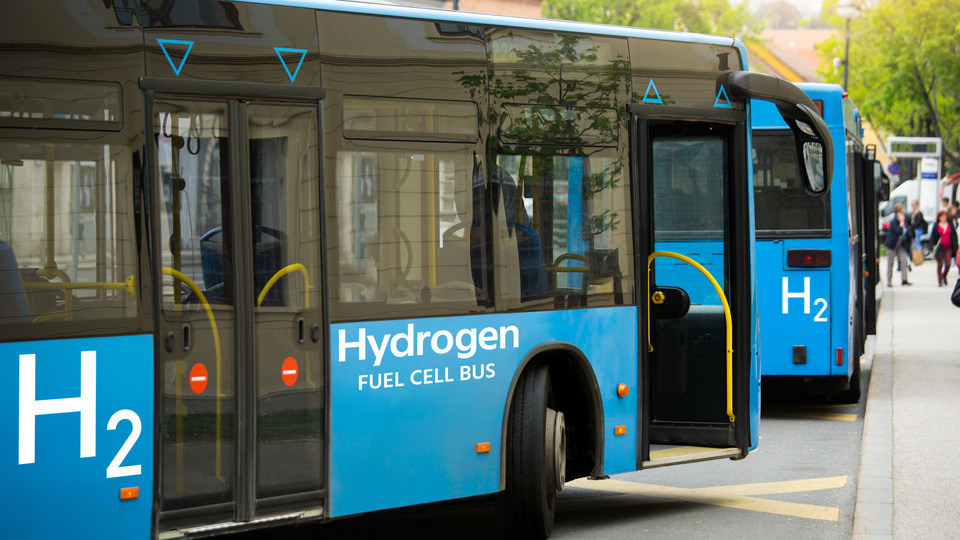
Several climate benefits of producing hydrogen from biogas, new report finds
Renewable hydrogen plays an important role in the green transition, but supply is still limited. In a research project, IVL Swedish Environmental Research Institute has studied the possibilities of producing hydrogen from biogas at wastewater treatment plants for use in city buses in Luleå. The results show that there are several advantages, both in terms of cost and climate.

"By producing hydrogen from biogas, more renewable hydrogen with good climate performance can be created. We believe that this may be a good idea in some cases, especially when biogas buses are replaced by electricity, and new applications for the biogas may be required”, says Tobias Gustavsson Binder, transport researcher at IVL.
One obstacle is that hydrogen produced from biogas is not included in the EU's ambitious plans for renewable hydrogen.
"The EU has decided that renewable hydrogen is synonymous with hydrogen from electricity. Although the actual objective is to close the door on fossil hydrogen, which is good, we think it's a pity that hydrogen from biogas is also excluded. At least it should be given a role as a transitional fuel until there is enough hydrogen from electrolysis”, says Tobias Gustavsson Binder.
The project has specifically examined city buses in Luleå, where Luleå Lokaltrafik AB sees hydrogen buses as a possible solution alongside battery buses, with the long-term aim of having a completely emission-free bus fleet. A special circumstance in Luleå is the cold climate, which means that battery buses need to be supplemented with a separate diesel-powered heater. Even if it is powered by renewable diesel, HVO100, this means that the bus contributes to local air pollution, whereas with hydrogen there is the potential to heat the bus using waste heat from the fuel cell.
"If the waste heat is sufficient to heat the buses in the winter, we see that there are advantages to using fuel cell buses in Luleå and other places with cold climates. However, this has not been tested in real operation, but there are good reasons to do this, so we can see if it works", says Anders Hjort, researcher and senior expert at IVL.
However, by comparing scenarios where Luleå Lokaltrafik AB uses battery buses and hydrogen, the project has shown that there are not many other benefits of using hydrogen in urban traffic. Hydrogen would be more expensive in terms of vehicles, fuels and infrastructure.
"Bus traffic is rapidly moving towards zero-emission operation, and we see increased interest in hydrogen and fuel cell buses. However, we see that for city buses, hydrogen is a more expensive option than electricity, but that it can be a relatively good option in, for example, regional buses and trucks with long range requirements”, says Anders Hjort.
Download a summary of the study (in Swedish) External link, opens in new window., or the complete study here
External link, opens in new window., or the complete study here External link, opens in new window..
External link, opens in new window..
For more information, contact:
Tobias Gustavsson Binder, expert in sustainable transport, IVL,
tobias.gustavsson.binder@ivl.se, tel. +46 (0)72-455 5167
Andreas Holmberg, technology and fuel strategist, Luleå Lokaltrafik,
andreas.holmberg@llt.lulea.se, tel. +46 (0)920-45 55 37
Björn Larsson, head of business area biogas Lumire,
bjorn.larsson@lumire.se, tel. +46 (0)920-25 99 95
The project was conducted in 2023 with funding from the Swedish Energy Agency, Luleå Lokaltrafik AB (LLT), Luleå Miljöresurs AB (LUMIRE) and Stiftelsen IVL.
